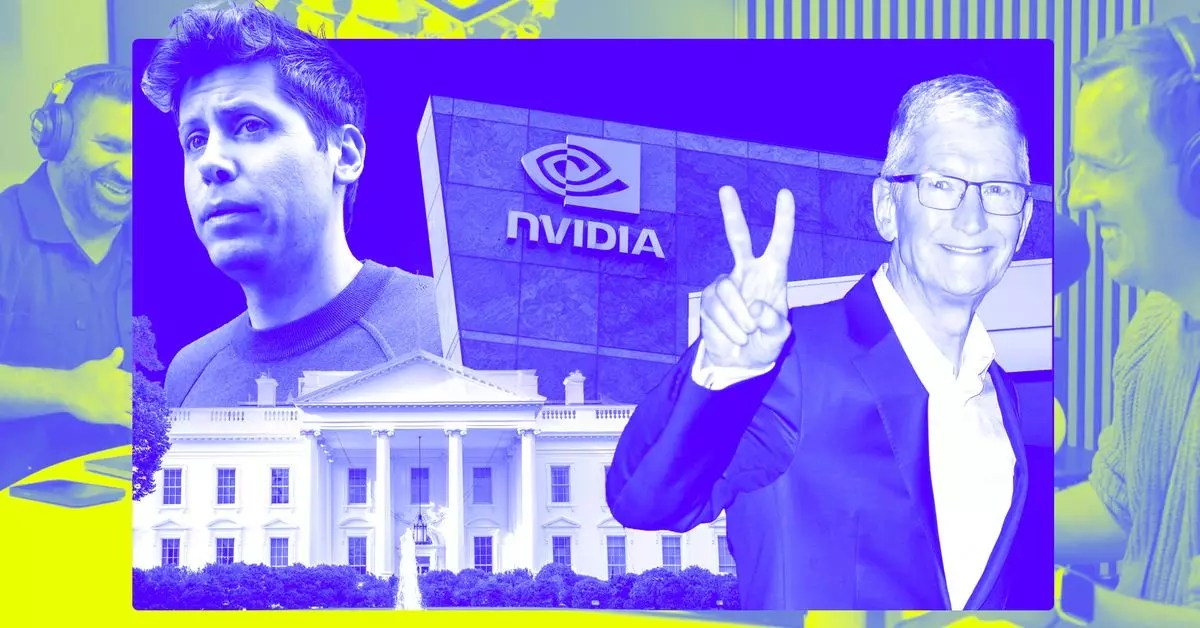As we stand on the threshold of a new technological era, it’s essential to discern what the future holds for the tech landscape over the next few years. With immense innovations emerging, from AI breakthroughs to the evolution of mobile devices, predictions about the tech world have become a riveting topic for discussion. Analyzing these forecasts provides a fascinating glimpse into both the optimistic and pessimistic outlooks of what’s to come.
In the speculative atmosphere of technology journalism, the overlap between current trends and future possibilities can be as unpredictable as it is intriguing. Picture this: a universe where the leaders of major tech giants are unchanged, and folding phones have finally made their leap into mainstream acceptance. These ideas seem whimsical but worth examining. If we consider that the CEOs entrenched in their roles reflect a reluctant conservatism in corporate leadership, the impact ripples through various sectors—for better or worse.
Nvidia ascending to the status of the most valuable company ever should not be disregarded either. This possibility points to a broader trend focusing on AI advancements and the gaming industry. As AI continues to shape development tools and workflows, companies like Nvidia stand to gain immensely if their GPU technology becomes the backbone for the next era of computing. The anticipation surrounding the powerful impact of AI calls into question whether the industry’s current giants, like Apple and Microsoft, can sustain relevance and emphasize future significance.
The potential acquisition of social media platforms such as Snap introduces compelling discussions around industry consolidation. The questions linger: Have we reached a saturation point regarding social networks? Will evolving consumer habits signal a shift that encourages mergers under the influence of economic pressures? With avid distrust towards older platforms, speculation on the future trajectory becomes paramount. The future tech scene will be bustling with startups and innovations from new players who could disrupt the established order—an enticing counterweight to concerns over stagnant giants.
A notable angle in predictions involves the operational shifts of companies like OpenAI. The transformation of OpenAI into a for-profit entity sparks debate about ethical considerations amid profit motives. This dichotomy of innovation and morality encapsulates the push and pull of rapid tech progression as society grapples with implications that come with growing autonomy in AI technology.
As the balance of power shifts in tech, government intervention is becoming an inevitable focus. The prospect of breaking up monopolistic behaviors within the tech domain raises critical questions for consumers and policymakers alike. Corporate behavior must navigate tight regulations alongside the pressures of overall societal trust in technology. An anticipated ‘society-sized AI scandal’ inevitably involves discussions around accountability, transparency, and ultimately, the legitimacy of these burgeoning technological advancements.
The media landscape is not immune, either. The potential collapse of streaming platforms like Paramount Plus and Peacock indicates that the competition is fierce, and only the most robust offerings may survive. The promise of an innovative tech company is parallel to an adaptive media landscape where only those that evolve will thrive, impacting popular culture and consumer behavior significantly.
The gaming industry remains a cornerstone of technological evolution. With buzz surrounding titles like GTA VI, speculation on its success raises considerations of how gaming evolves into a cultural phenomenon shaping entertainment standards. Traditional gaming consoles face stiff competition from mobile gaming devices, alongside an ever-growing community of developers willing to innovate.
Amid these discussions, devices like the Pixel 10 and the future of appliances such as Alexa should be viewed through the lens of their user adoption. The ambition of tech companies to procure market dominance comes hand-in-hand with consumer expectations of performance. The dynamics between functionality and user experience will guide the popularity of gadgets.
While we can’t predict the future with complete certainty, anticipating the potential trajectories of prominent players within the tech realm cultivates a narrative of exploration and examination. Understanding these trends encourages active participation in discussions around innovation and adaptation—vital narratives which will ultimately shape the future of technology.


Leave a Reply